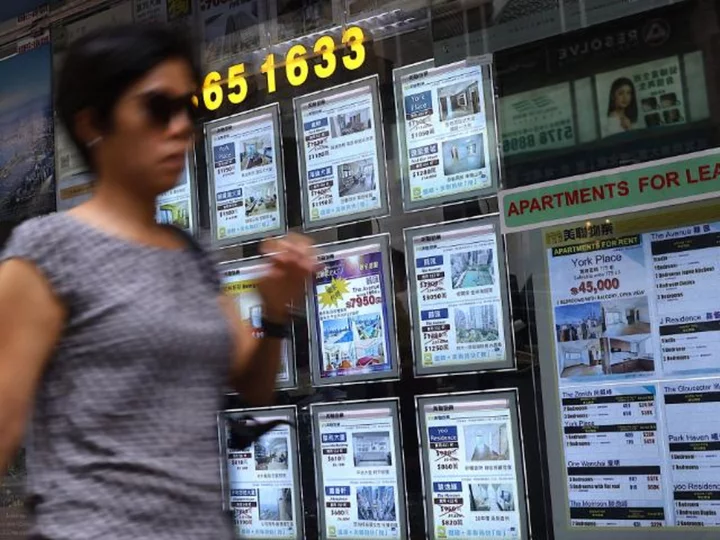China has extended some policies to bolster its ailing property market, as the country struggles to reignite economic growth.
The move has buoyed the Chinese currency, the yuan, and stock markets in mainland China and Hong Kong, where the benchmark Hang Seng index finished about 1% higher Tuesday.
In November, the authorities unveiled a 16-point plan to revive the depressed real estate sector, which accounts for as much as 30% of China's gross domestic product.
Key measures included allowing banks to extend maturing loans to developers, supporting property sales by reducing the size of down payments and interest rates on mortgages, boosting other funding channels such as bond issues and ensuring the delivery of pre-sold homes to buyers.
On Monday, China's central bank and the National Financial Regulatory Administration, a powerful financial watchdog set up in March, jointly announced that some of these measures would be extended until the end of 2024.
Larry Hu, chief China economist at Macquarie Group, wrote in a research note that the extension of policies on two types of loans were meant to encourage commercial banks to increase their exposure to the property sector.
The moves announced Monday are "far from enough [to stabilize] the sector," he said, adding that the announcement could signal more supportive policies to come.
"Looking ahead, we expect to see more easing on the demand side, such as lowering the down-payment ratio and easing purchase restrictions."
Stephen Innes, managing partner at SPI Asset Management, said the measures were a "large step" in helping the property sector deal with liquidity issues.
"[This] move will help restore confidence and bring much-needed liquidity into the property supply chain, with beneficial effects on short-term confidence," he said.
China's economy has taken a deep hit from three years of draconian Covid restrictions, which hammered consumer spending and disrupted factory production. The property market is still in the midst of a historic downturn.
After Beijing ended its zero-Covid policy in December, the economy experienced an initial burst of activity, with GDP growing 4.5% in the first quarter from a year earlier. But momentum has since slowed.
To bolster growth, the People's Bank of China cut its main benchmark lending rates in June for the first time in 10 months.
Many analysts said the move wasn't enough and called for a much bolder stimulus package, including direct measures to boost consumption and the housing market.









